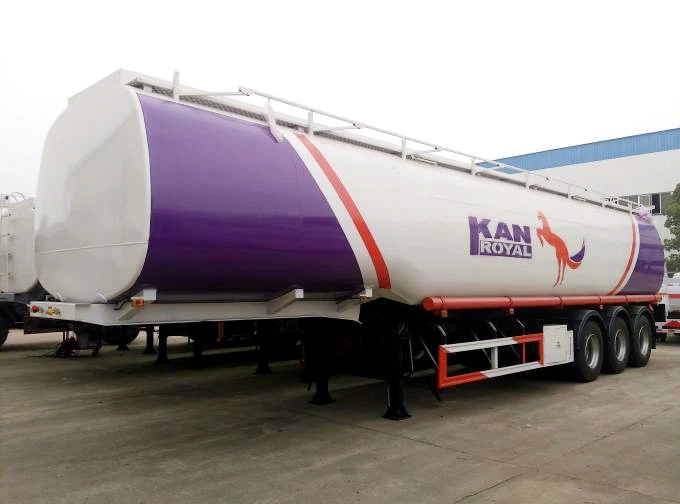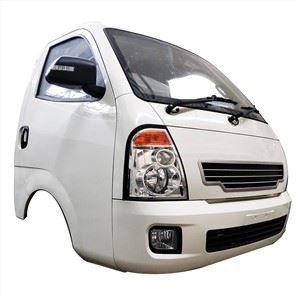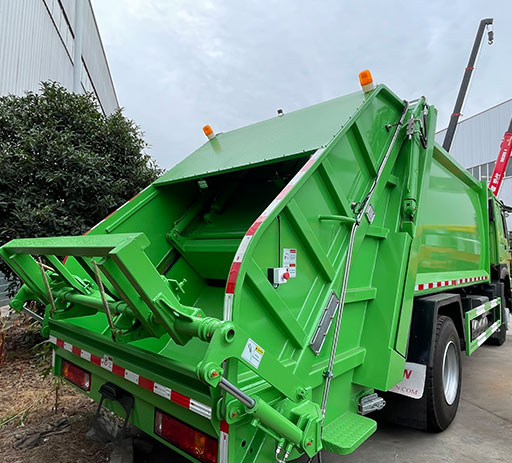Understanding Vacuum Suction Trucks: A Comprehensive Guide

Vacuum suction trucks are essential tools in various industries, known for their efficiency in liquid waste management and material transportation. This article explores the functionality, benefits, and applications of vacuum suction trucks, offering insights into their operation and maintenance.
What is a Vacuum Suction Truck?
A vacuum suction truck, commonly referred to as a vacuum truck, is a specialized vehicle equipped with a vacuum pump and a large tank. The primary purpose of these trucks is to collect, transport, and dispose of liquid waste, sludge, and other waste materials from various sites, making them indispensable in municipal and industrial settings.
How Do Vacuum Suction Trucks Work?
Vacuum suction trucks operate using a suction mechanism powered by a vacuum pump. This pump creates negative pressure, allowing the truck to suck up liquids and semi-solid materials through a hose connected to the tank. Once collected, the materials are transported to treatment facilities or disposal sites.
Components of a Vacuum Suction Truck
- Tank: The storage unit for collected materials, usually made of steel or aluminum.
- Vacuum Pump: The heart of the system that generates the suction necessary for collection.
- Hoses: Flexible tubes used for sucking up waste, often varying in diameter.
- Controls: Systems for operating the vacuum pump and monitoring the tank’s capacity.
- Filters: Prevent debris from entering the vacuum pump, ensuring efficient operation.
Types of Vacuum Suction Trucks
There are several types of vacuum suction trucks, each tailored to specific tasks and conditions.
1. Combination Vacuum Trucks
Combination vacuum trucks are equipped with both vacuum and jetting capabilities. This dual functionality allows operators to not only suck up waste but also clean lines and tanks using high-pressure water jets. They are particularly effective in maintaining sewer systems and industrial sites.
2. Liquid Waste Vacuum Trucks
Designed specifically for the transportation of liquid waste such as sewage and oil, these trucks typically have tanks that can handle corrosive substances, ensuring safe transport to disposal sites.
3. Dry Vacuum Trucks
Dry vacuum trucks are suited for collecting dry materials such as sand, dust, and gravels. These trucks utilize a different vacuum system to handle solids, making them ideal for construction and industrial cleanup.
Table: Comparison of Vacuum Truck Types
| Type | Functionality | Common Applications |
|---|---|---|
| Combination | Vacuum and jetting | Sewer maintenance, industrial cleaning |
| Liquid Waste | Liquid waste transport | Sewage disposal, oil recovery |
| Dry Vacuum | Collection of dry materials | Construction sites, dust control |
Benefits of Using Vacuum Suction Trucks

Vacuum suction trucks offer numerous benefits, enhancing efficiency and safety across various industries.
1. Efficient Waste Management
These trucks enable quick and effective waste removal, minimizing downtime and maintaining cleanliness on job sites.
2. Versatility
Vacuum suction trucks can handle a wide range of materials, including liquids, semi-solids, and dry substances, making them suitable for diverse applications.
3. Environmental Compliance
Utilizing vacuum suction trucks helps organizations meet environmental regulations by ensuring proper disposal of waste materials and preventing spills.
4. Safety
By managing hazardous materials safely, these trucks help reduce the risk of workplace accidents and environmental contamination.
Key Applications of Vacuum Suction Trucks
Vacuum suction trucks are utilized in various sectors, demonstrating their flexibility and importance.
1. Municipal Waste Management
Local governments use vacuum suction trucks for sewer cleaning, stormwater management, and collection of septic tank waste.
2. Industrial Cleanup
In industrial settings, these trucks are essential for cleaning up spills, collecting sludge from production processes, and managing hazardous wastes.

3. Environmental Remediation
Vacuum trucks play a vital role in environmental clean-up efforts, aiding in the removal of contaminated soils and liquids from remediation sites.
4. Construction Sites
Construction teams use vacuum suction trucks to manage site debris, collect runoff, and ensure a clean work environment.
Choosing the Right Vacuum Suction Truck
Selecting the appropriate vacuum suction truck is crucial for maximizing operational efficiency. Consider the following factors:
1. Purpose of Use

Identify the specific task — whether it’s collecting liquid waste, cleaning sewer lines, or transporting dry materials. This will determine the type of truck required.
2. Tank Capacity
Ensure the truck’s tank size is adequate for the volume of waste typically encountered on your projects. A larger tank reduces the frequency of emptying.
3. Vehicle Mobility
Consider the terrain and site conditions where the truck will operate. Smaller vacuum trucks may maneuver better in tight spaces, whereas larger trucks can handle more substantial loads.
4. Regulatory Compliance
Ensure the truck meets local and federal regulations, particularly when handling hazardous materials. Compliance is crucial for legal operation.
Operation and Maintenance of Vacuum Suction Trucks
Proper operation and consistent maintenance are vital for the longevity and efficiency of vacuum suction trucks.
1. Pre-Operation Checks
Before use, operators should inspect crucial components, including hoses, pumps, and tanks, to identify any potential issues.
2. Regular Maintenance
Regular maintenance, including oil changes, filter replacements, and checking for wear and tear, ensures reliable operation and extends the life of the truck.
3. Safe Operation Practices
Trained operators should follow safety guidelines to minimize risks, including proper loading techniques and site operating protocols.
4. Cleaning the Tank
Post-operation, cleaning the tank helps to prevent contamination and build-up of materials, ensuring optimal performance for subsequent jobs.
Cost Considerations for Vacuum Suction Trucks
Investing in a vacuum suction truck involves various costs that should be considered carefully.
1. Purchase vs. Rental
Businesses must determine whether to purchase or rent a vacuum suction truck. Purchasing requires a significant upfront investment, while rental can reduce immediate expenses.
2. Operating Costs
Consider ongoing costs, including fuel, maintenance, insurance, and compliance costs when budgeting for vehicle operation.
3. Labor Costs
Operator wages and training costs are ongoing expenses that should also be factored into the total operational costs of using vacuum suction trucks.
FAQs About Vacuum Suction Trucks
1. What types of materials can be collected with a vacuum suction truck?
Vacuum suction trucks can collect a wide range of materials, including liquid waste, sludge, and dry materials. Specific types depend on the truck’s design and capabilities.
2. How often should vacuum suction trucks be maintained?
Regular maintenance should be conducted according to the manufacturer’s guidelines, typically every 1,000 operational hours or once a year, depending on usage.
3. Can a vacuum suction truck handle hazardous materials?
Yes, many vacuum suction trucks are designed to handle hazardous materials, but it is crucial to ensure the truck meets regulatory requirements for such materials.
4. What is the average cost of a vacuum suction truck?
The cost of a vacuum suction truck can vary widely, typically ranging from $100,000 to $500,000 or more, depending on the specifications and features.
5. Is training required to operate a vacuum suction truck?
Yes, operators should receive proper training to ensure safe and effective operation of vacuum suction trucks. This includes understanding equipment controls and safety protocols.
6. What are the typical applications of vacuum suction trucks in construction?
In construction, vacuum suction trucks are commonly used for site cleanup, managing runoff, and transporting debris to ensure a clean and safe working environment.
